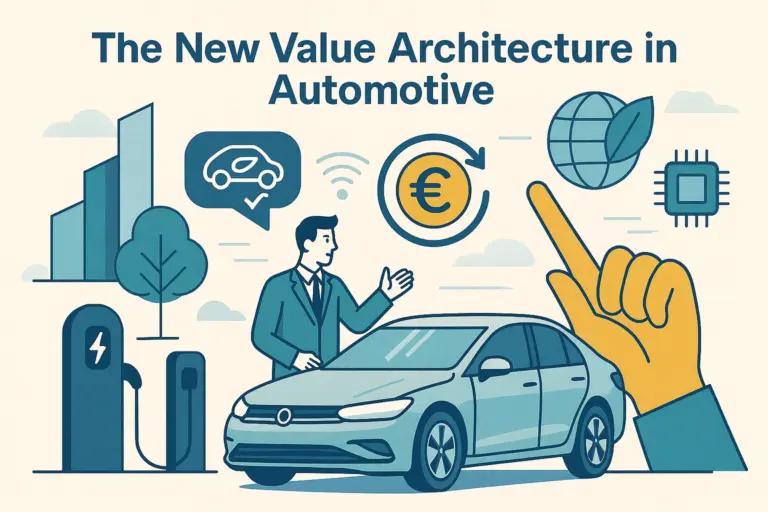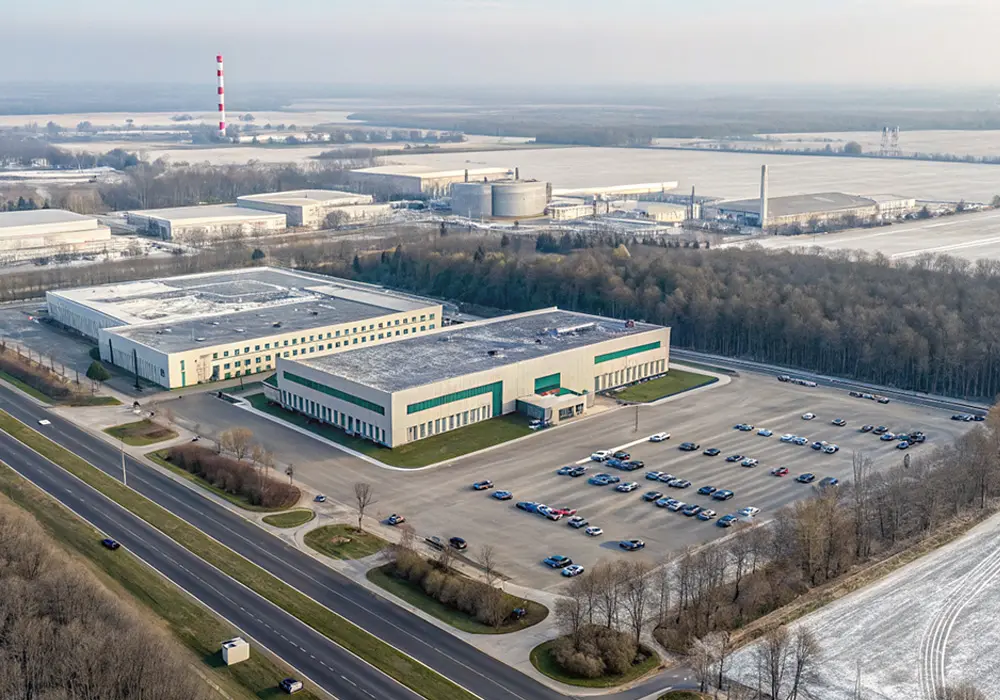Changes in the Management Board of ElectroMobility Poland
The Supervisory Board of ElectroMobility Poland S.A. adopted a resolution to dismiss Łukasz Maliczenko from his position as Vice President of EMP, effective as of January 22, 2026.
Read moreLearn more about EMP

The Supervisory Board of ElectroMobility Poland S.A. adopted a resolution to dismiss Łukasz Maliczenko from his position as Vice President of EMP, effective as of January 22, 2026.
Read more
The EMP Hub is an investment aimed at developing a competitive, technologically advanced, high-volume initiative with an international market reach.
Read more
The transformation of the automotive industry is redefining the rigid structures that have shaped the market for decades. Competitiveness and profitability no longer stem from simply expanding production volumes — today, real influence and value are created through control over the critical elements of the supply chain. Supply chains have become the new architecture of margin allocation and the primary source of control over technology and intellectual property.
Read moreDiscover key areas driving growth, innovation, and effective management.
Strategy development, market analysis, branding, digital communication, product positioning, competitor analysis.
Fundraising, financial modeling, collaboration with banks, profitability assessment, project structuring.
Expansion strategies, transaction analysis, negotiations, joint ventures, investor relations, market monitoring.
Procurement strategies, strategic partnerships, market intelligence, value creation for the Company, cost and process optimization, business analysis, negotiations, supplier and contract management, procurement policy
Vehicle technology development, engineering and cybersecurity; integration and development of digital services; collaboration with R&D partners.
Corporate, production, and sales systems. Digitalization of business processes, user support, information security. Building digital platforms and services.
Project oversight, schedules, budgets, risk management, change management, team coordination.
Legal support, contracts, internal regulations, compliance, company representation.
Communication policy, PR, media, events, internal communication, corporate image, communication tools.
Line design, construction supervision, investments, production technology, supplier management, risk control.


Our mission is to support innovative projects and businesses shaping the future of mobility: zero-emission, intelligent, and integrated with new energy systems.
We incubate ventures that combine advanced technology with real market potential – strengthening the competitiveness, resilience, and independence of the new mobility sector in Poland and Europe.
We believe the future of automotive is not just cars – it’s an entire ecosystem of energy, data, and user experience. And that’s the ecosystem we help create.
Next-generation vehicles based on new energy sources (NEVs) are changing how we think about mobility, energy, and the environment. These aren't just vehicles—they're intelligent platforms integrating with the digital world, supporting energy transformation, and addressing global climate challenges.
V2G-capable EVs can both receive and return energy, supporting power grids. They become part of home and city RES systems, turning the car into an active infrastructure element.
Electric cars have fewer mechanical parts, reducing service costs. Charging is cheaper than refueling, especially with home energy sources or night-time tariffs.
The car is becoming a platform for services: entertainment, on-demand transportation. NEVs are redefining mobility—from a product to a smart service.
Auto staje się platformą usług: rozrywka, transport na żądanie. NEV-y redefiniują mobilność — z produktu na inteligentną usługę.
NEVs reduce noise pollution and eliminate exhaust emissions. This is key to achieving climate goals and creating cleaner cities.
NEVs reduce oil dependence, develop new industries and jobs. This sector is becoming strategic for technological and energy sovereignty.